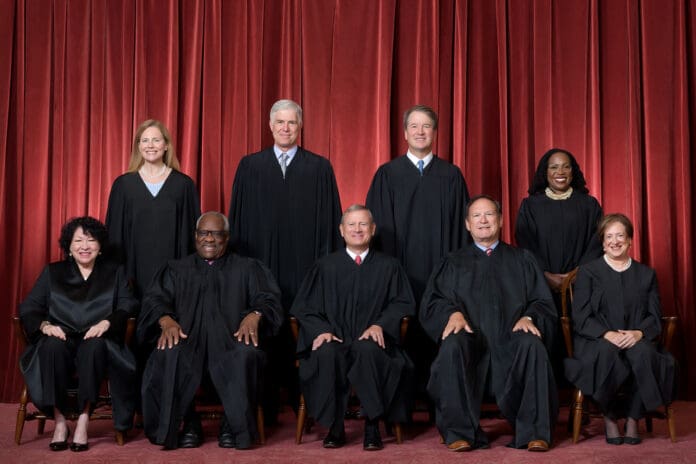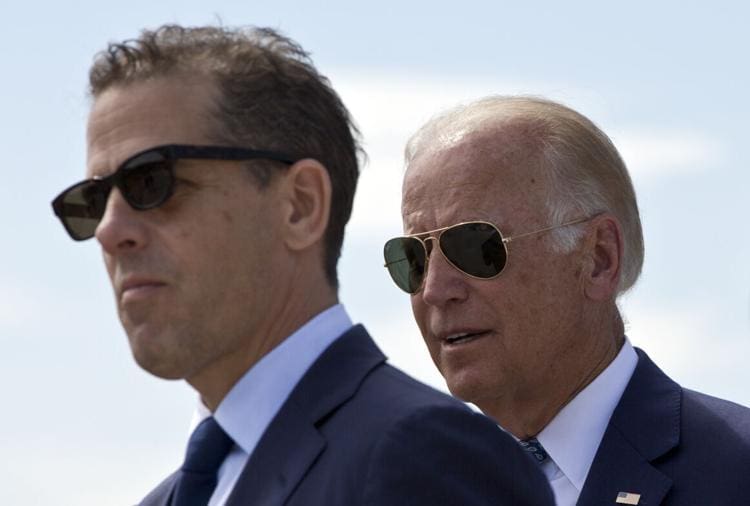By a razor-thin margin, the U.S. Supreme Court on Monday agreed to hear the challenge to the Biden Administration’s “ghost gun” law.
The case, VanDerStok v. Garland, challenges the Department of Justice’s 2022 Final Rule that redefined important legal terms dealing with guns, including “firearm,” “receiver” and “frame,” making the longstanding American tradition of building personal firearms pretty much a thing of the past.
The vote to hear the case was 4-to-3, with no information released as to who voted for or against hearing the case. It takes four “yea” votes for the Supreme Court to grant a review in a case.
At issue is whether the DOJ and Bureau of Alcohol, Tobacco, Firearms and Explosives (ATF) overstepped their bounds in promulgating the Final Rule. Plaintiffs in the case argue that the rule is just another example of the bureaucrat-run agencies overstepping their bounds by making laws instead of enforcing them.
That’s exactly what a three-judge panel of the Fifth Circuit Court of Appeals found last November when it unanimously ruled to uphold an earlier district court decision on the matter. In that ruling, Judge Kurt Engelhardt, who wrote the majority opinion, agreed in no uncertain terms that the rule was an overstep.
“ATF, in promulgating its Final Rule, attempted to take on the mantle of Congress to ‘do something’ with respect to gun control,” Judge Engelhardt, a Donald Trump nominee, wrote in the opinion. “But it is not the province of an executive agency to write laws for our nation. That vital duty, for better or for worse, lies solely with the legislature.”
Judge Engelhardt further wrote that the Final Rule “flouts clear statutory text” and “exceeds the legislatively imposed limits” on agency authority.
“Because Congress has neither authorized the expansion of firearm regulation nor permitted the criminalization of previously lawful conduct, the proposed rule constitutes unlawful agency action, in direct contravention of the legislature’s will,” the judge wrote. “Unless and until Congress acts to expand or alter the language of the Gun Control Act, ATF must operate within the statutory text’s existing limits.”
The lawsuit was brought by the Firearms Policy Coalition (FPC) on behalf of itself, two individual FPC members and Tactical Machining LLC. News that the Supreme Court would hear the case brought a positive reaction from FPC Founder and President Brandon Combs.
“FPC and our members look forward to the end of President Biden’s unconstitutional and abusive rule,” Combs said in an FPC press release. “We are delighted that the Supreme Court will hear our case and decide this important issue once and for all. The Fifth Circuit’s decision in our case was correct and now that victory can be applied to the entire country.”
Cody J. Wisniewski, FPC Action Foundation president and counsel for the plaintiffs, said the case should teach the ATF a lesson about who is charged with making laws in the country.
“This is an important day for the entire liberty movement,” Wisniewski said. “By agreeing to hear our case, the Supreme Court will have the opportunity to put ATF firmly in its place and stop the agency from unconstitutionally expanding its gun control agenda. We look forward to addressing this unlawful rule in the Court’s next term.”
The case has been added to the high court’s calendar for the session beginning in October. Oral arguments in the case are expected to begin sometime this fall.





This fall.
Like October 31st?
“Like October 31st?”
Are you hoping for an unpeasant trick? 🙁
I’m hoping on a government-power limiting, freedom-enhancing treat… 🙂
*Breaking News* –
Anthony at the ‘Armed Scholar’ YouTube channel is now reporting the case will be *HEARD AND DECIDED* by the upcoming June court summer recess.
Talk about a ‘Rocket Docket’… 😉
https://www.youtube.com/watch?v=nnrzsZuDe6I
If ever you’d need a ghost gun this would be it.
Deer Rifles are no good.
Cody J. Wisniewski, FPC Action Foundation president and counsel for the plaintiffs, said the case should teach the ATF a lesson…”
AHAHAHAHAHAHAHAHAHAHAHAHA! Damn, the hopium is strong! Someone must be spiking it with fentanyl.
“Damn, the hopium is strong! Someone must be spiking it with fentanyl.”
Huh? Do you know something I don’t about this?
Please elaborate…
There are two ways the ATF actually learns a lesson.
1. The agency is disbanded.
2. The agency has a series of incidents where they go out for some doorkicking fun and end up taking significant losses which result in public glee.
DOJ gave ATF discretion NOT to use body cams in deadly raid.
https://www.youtube.com/watch?v=tUdObV3R-0g
Honestly my major concern is my chit state of ILLANNOY. And retrieving my rifle & verboten magazine(and putting our home on the market)🙄 .Gov is making all of criminals. April 19,1775.
As for ILLANNOY…
https://youtube.com/watch?v=6UlLl5rfrvg&feature=shared
The underbelly of Gun Control…
https://youtube.com/watch?v=RjktTmNIqYE&feature=shared
Gun Control gets butthurt…
https://youtube.com/watch?v=4hH4mvlfOVI&feature=shared
Historical Analogies Matter…Big Time.
https://youtube.com/watch?v=ZFEz3Bt9hCw&feature=shared
Finally coming around to what I have been saying here for over 2 years. While people on this site gave me hell for saying it. It is up to each individual to protect and defend their Rights. Just like was done on April 19,1775 and not rely on politicians and judges in black robes to decide what your rights are and how you can exercise them. That is why so many fought and died for what became the Constitution. Remember when asked. What kind of government do we have Dr. Franklin, a Monarchy or a Republic? He replied a Republic, If you can keep it. What is being witnessed in regards to government now is far from the Republic we were given.
The new image of the Federal agent: a tatted bulld***.
They planned to murder him. biden has created death squads. Or whoever is controlling puppet joe.
“DOJ gave ATF discretion NOT to use body cams in deadly raid.”
If that is true, arrests must be made, convictions secured with long federal prison sentences, and we need to commence with ‘protests’ like the Leftist Scum ™ inflict on the inner-cities… 🙁
An interesting RetCon from the DOJ.
Next they’ll tell us that girl was given a nose job, as per department policy.
Someone correct me if I’m wrong here, but the Chevron case led us to where we are now with the Washington bureaucracy calling the shots, ie, interpreting the law.
It seems to me that our congress critters need to stick to the job of running the country by writing better laws that don’t allow unelected petty tyrants to interpret the law according to a political slant or the whims of social media.
Aren’t politicians devolved lawyers? This may partially explain how laws are written so badly there is a lot of room for “interpretation”.
Looks like W0rdpr3ss didn’t like what I had to say…again.
It’s done it to me as well… 🙁
With the two Chevron cases waiting a decision, why take this case now, rather than wait until Chevron is dispatched? If Chevron goes away, doesn’t that render this case moot? Could the Chevron decision spur a summary judgement here?
Or is this a sign that the two Chevron cases are not going to go well for us? If SCOTUS kills or seriously curtails the Chevron doctrine, then this case really shouldn’t matter.
“With the two Chevron cases waiting a decision, why take this case now, rather than wait until Chevron is dispatched?”
I’m no lawyer (obviously 🙁 ), but aren’t previous ATF actions not affected?
“The vote to hear the case was 4-to-3, with no information released as to who voted for or against hearing the case.”
Where did this information come from? The official order list does not give vote counts.
ATF Further Exploits BSCA to Spring Another Rule on Gun Owners With Short Comment Period > https://www.shootingnewsweekly.com/2024/04/23/atf-further-exploits-bsca-to-spring-another-rule-on-gun-owners-with-short-comment-period/
“Why Some Ardent Libertarians Support Judge Ketanji Brown Jackson’s Confirmation”
Thank you to libertarians who like this black female judge. They also can’t seem to answer the question.
“What is a woman.”
It seems her skin color was the only thing that was important to them. Not the content of her character.
https://www.thenation.com/article/politics/libertarians-ketanji-brown-jackson/
Comments are closed.